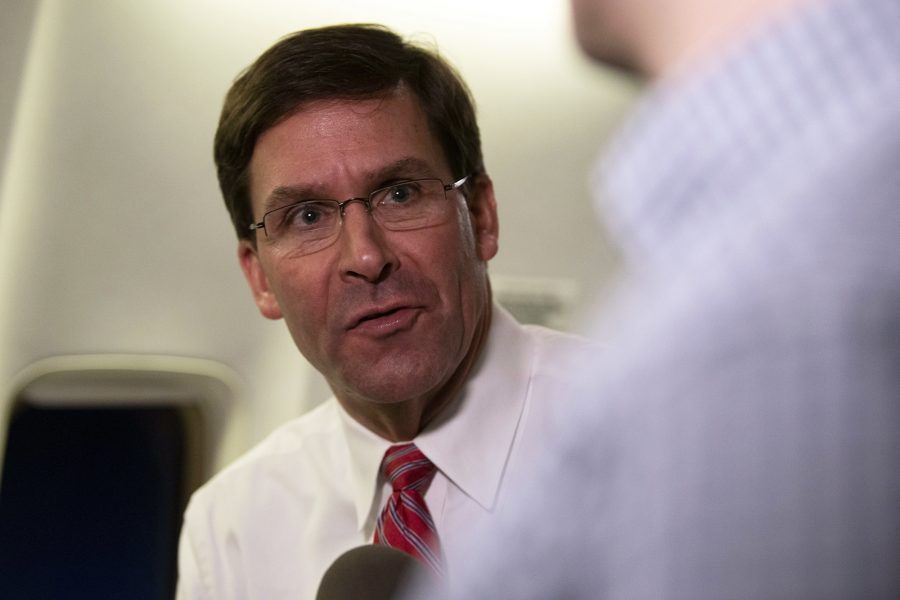Defense Secretary Mark Esper rallied the troops for the New Year in a letter telling Pentagon employees to work hard, spend money wisely, and prioritize their time well to maintain global military dominance.
In a Jan. 2 memo to all Defense Department personnel, Esper urged the armed forces to accept that they will need to make sacrifices for the sake of the National Defense Strategy and the “aggressive reforms” it requires.
“To meet the objectives outlined in the NDS, we must continue to make the most of every resource,” Esper wrote in the letter obtained by Air Force Magazine. “I expect leaders at all levels to ruthlessly prioritize to ensure your time, money, and manpower are put into the right efforts and activities.”
Everyone across the Joint Force is busy, he acknowledged. But are they spending that time well?
“Prioritize those activities that contribute most to the readiness and lethality of the force,” he directed. “Make time by doing away with low-priority, low-value activities.”
That could mean maximizing training time via augmented reality, cutting out unnecessary paperwork that slows down everyday work, digitizing logs that would otherwise be done by hand, or giving service members new tasks altogether. One of the Pentagon’s highest-profile pushes to get rid of unnecessary requirements has been to streamline its complex procurement process, which often aims to cut costs as well.
Esper pointed out that gearing up for conflict with Russia, China, and other advanced nations isn’t cheap. DOD wants more high-end fighter jets, faster and more resilient data-sharing networks, improved electronic and cyber warfare systems, and new technologies like lasers and autonomous weapons. But it also needs to keep current forces ready to go.
“The trade-off between current readiness and future modernization is one of our most difficult decisions,” Esper wrote. “Getting this right requires a deliberate budgeting process and continual assessment. Every leader should review their spending in detail and not hesitate to reallocate resources.”
The Air Force has foreshadowed significant inventory changes in the upcoming fiscal 2021 budget that are driven by future combat needs. Some experts worry that while enormous, next year’s expected $740 billion defense budget isn’t enough financial growth for the military to stay ready and modernize at the same time. To make it work, senior leaders are pushing the idea of doing more with what they have—particularly in case of a fiscal downturn.
“Fund your highest priorities first, so that when fiscal conditions change, you will still be able to accomplish your mission,” Esper said.
He also urged the armed forces to make sure uniformed personnel are doing work in line with DOD’s strategic priorities, noting the department’s effort to grow the number of service members who can deploy. That means cracking down on people who need to update their vaccinations, address any injuries, and prepare for physical fitness tests.
“We must now demonstrate our continued commitment to the nation by prioritizing the use of every hour, dollar, and person to help ensure we remain the greatest military in history,” Esper said.
He briefly touched on the same topics in his first message to the force as acting defense secretary last June. Esper’s reminder to focus on great power competition comes as recent tensions with Iran made clear that the Middle East will continue to demand DOD’s time and resources, even as the Pentagon stresses a shift in its priorities.

